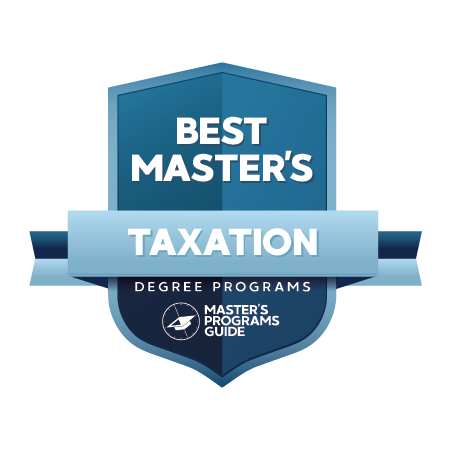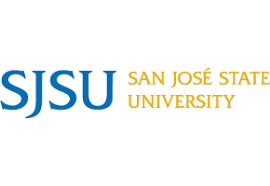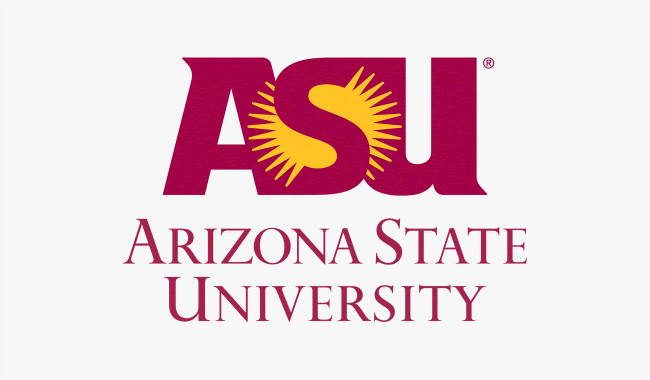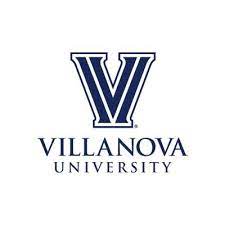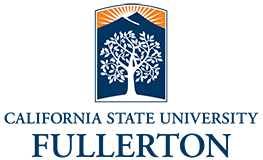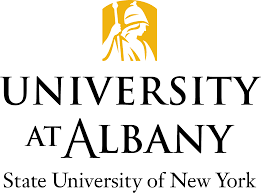Ready to find your ideal master's program?
www.mastersprogramsguide.com is an advertising-supported site. Featured or trusted partner programs and all school search, finder, or match results are for schools that compensate us. This compensation does not influence our school rankings, resource guides, or other editorially-independent information published on this site.
Holding a master’s degree in taxation gives students an incredible advantage in a competitive job market. There are no shortages of companies and governmental agencies looking to hire tax masters! Attending one of the best master’s in taxation programs will set you up for a successful and lucrative career.
COMMON APPLICATION AND ADMISSION QUESTIONS
One of the toughest things about graduate school is getting accepted! Graduate programs tend to be smaller than undergrad ones. They can be very selective. They have higher expectations, too. Applicants have already finished a bachelor’s degree. They should, in theory, be prepared to continue their education at an advanced level.
Admission standards do vary. Put your schools into three columns: “dream,” “good shot,” and “just in case.”
“Dream colleges” are where you’d go if you could be granted any wish. “Good shot” programs are ones where you meet all the qualifications. However, you should still expect stiff competition. “Just in case” schools are those you’d be accepted to, but are less interested in.
We’ve done the legwork to create a list featuring top-notch schools with tough-yet-attainable admissions criteria. Consider these dream colleges. But they are dream colleges which applicants still have a good shot of getting into! All are top ranked institutions of higher learning. They have well- recognized taxation programs that are taught by leaders in the field.
They have encouraging admissions rates for highly qualified candidates. But it’s up to you to review each requirement and prerequisite. There is no such thing as guaranteed admission to any graduate school.
Pay attention to sections where there is a “minimum” and a “recommended” score. The recommended score lets you know the school has rejected applicants with scores less than that. This isn’t to discourage you from applying. But if your undergrad GPA is a 3.0 and the school recommends a 3.5, you might have to shift that school to your dream column.
Students are often asked to submit letters of recommendation. Send as many as allowed, if they meet the specific requirements outlined. Don’t use generic letters written in advance. Look at what the school asks for in terms of content.
The same advice goes for statements of purpose and resumes. These, too, are significant elements of your application. If the department spells out certain things, it is best to customize your documents to fit. Never recycle the same statement or resume. Tailor each one and keep them organized on your computer.
It’s worth it to hire a professional who is experienced in grad school applications to review your documents. As you might imagine, taxation departments don’t like to see mistakes!
Finally, when you’re applying to a master’s in taxation, be sure to ask what courses are required as part of your taxation degree. Common requirements for taxation master’s programs include on campus and online courses in things like:
- tax research
- tax code
- business administration
- financial reporting
- tax consequences
- working with government agencies
- tax policy
- tax issues
- federal tax regulations
- Internal Revenue Service workings
Students may be able to take more specialized taxation courses that allow you to work firsthand with tax accountants and even the Internal Revenue Service in an internship, too. These taxation concentration focuses and internships are generally more in depth than what you’d get with a bachelor’s degree. A master’s degree and the curriculum of your program prepares students for the CPA exam and many other career paths, such as work in law firms.
Look for a master’s degree that is accredited by the Association to Advance Collegiate Schools of Business as well as one that has a taxation concentration that meets your career goals.
See Also: 10 Best Master’s in Industrial Engineering
WHAT ABOUT FINANCIAL AID & SCHOLARSHIPS?
Earning a graduate degree is a rewarding but expensive endeavor. Over time, master’s degree holders gross up to $40,000 per year more than those with a bachelor’s degree. With tuition rates running into the tens of thousands of dollars per year, the problem of funding must be put front and center.
The “easy route” for paying for college might seem like taking out a student loan. However, we recommend finding the free money first. Grants and scholarships never have to be repaid. That’s the best thing about them! Grants are based on financial need. Scholarships are often based on scholastic merit or other significant achievements.
Students may apply for Federal Student Aid using the Free Application for Federal Student Aid (FAFSA).
The FAFSA will help determine your eligibility for Pell Grants. These are typically for undergrads. Most schools offer some form of college-based financial awards.
There are several state and local scholarship opportunities gifted by various associations and alumni. Military veterans (or eligible dependents) will want to maximize their GI Bill by reaching out to financial aid offices. It’s also a great idea to check if your prospective schools are in the Yellow Ribbon Program, which students may use to cover out-of-pocket expenses beyond the costs paid by the Post 9/11 GI Bill.
Federal student loans are another good option to supplement financial aid, when necessary. Independent students can receive up to $20,500 per school year in unsubsidized loans.
WHAT JOBS CAN I GET WITH A MASTER’S IN TAXATION?
There are no shortages of companies and governmental agencies looking to hire trained tax masters!
The most popular career options, according to the Bureau of Labor Statistics, include:
- State and federal agencies. Here, you’ll work directly with individuals on private tax matters and business tax returns. You will assist filers with correcting errors to avoid penalties and to recover unpaid funds.
- Tax consulting. In this job, you provide expert help for filers so they can avoid making mistakes in the first place.
- Accountant or CPA. This is a flexible option because you can work as a freelancer or for a company. You could assist as a finance officer or auditor.
- IRS Enrolled Agent. Your job here will be acting as an intermediary to represent taxpayers in contested situations involving the IRS. This is the highest credential awarded by the IRS. Agents have unlimited freedom to represent who they want.
What kind of job titles can you have after completing a master’s in taxation? Tax professionals are found in every walk of life, with common taxation program graduate job titles including:
- Tax law specialist or lawyer
- Tax code analyst
- Tax accountant (tax accountants are needed just about everywhere!)
- Internal Revenue Service agent
- Certified public accountant
- Tax policy specialist
- Program director
- Appeals officers
Clearly, is the gateway to professional success and more specialized knowledge of tax law and policy! The job opportunities and high level careers are endless and the knowledge here can’t be compared to what students learn in any other programs.
HOW MUCH MONEY CAN I MAKE WITH A MASTER’S IN TAXATION?
The salary range is also wide-ranging. The specialized knowledge you’ll receive prepares students for work in all kinds of fields – with all kinds of salaries.
Below are a handful of average annual base salary comparisons and the highest reported salary for each. This is as reported on Glassdoor:
- Tax consultant – $62,150 (high of $76,000)
- Entry-level tax accountant salary – $63,082 (high of $87,000)
- Corporate tax accountant – $67,094 (high of $88,000)
- Internal Revenue agent – $71,380 (high of $91,000)
- Senior tax accountant – $78,840 (high of $103,000)
Don’t forget about all the fringe employee benefits you might be able to get with a taxation master’s, either.
The Department of Labor’s Bureau of Labor Statistics (BLS) offers invaluable insights via its online Occupational Outlook Handbook listings. These are for tax examiners and collectors and revenue agents:
- Federal government – $61,880
- State government and tax policy, excluding education and hospitals – $52,950
- Local government and tax policy, excluding education and hospitals – $45,190
The highest-grossing 10% of workers in this general area made more than $100,000. This is consistent with Glassdoor’s reported salary for a senior tax accountant.
The Bureau of Labor Statistics predicts that job growth in the field of tax examiners, collectors, and revenue agents will decrease by about 2% over the next 2 years. This means the market will be more competitive. Those holding advanced degrees should fare better than others. Yet another reason to go get that master’s degree! This holds true for those with ambitions to pursue supervisory or managerial roles.
Now that you’ve had a chance to review application tips, explore financial aid opportunities, review career options, and check out some fascinating facts about the realm of taxes, it’s time to dive into our list of the 10 Best Master’s Programs in Taxation!
Keep reading for our masters in taxation programs rankings for 2022 and beyond!
#1. SAN JOSE STATE UNIVERSITY
MASTER OF SCIENCE IN TAXATION
You’ll find one of the top MS taxation programs at San Jose State. San Jose State University (SJSU) has been an agent of change since its inception in 1857. It’s cited by Money magazine as the No. 1 Most Transformative College in the Nation. It also has one of the most diverse student bodies in the country. This school prepares students with the specialized knowledge they need for any kind of taxation work.
This program is taught by experts in the field of taxes. San Jose State University’s Lucas Graduate School of Business offers a convenient 30-credit hour Master of Science in Taxation (MST). It is aimed at helping students excel at research and the comprehension of complex tax rules. The program prepares students to launch into successful new careers or advance in their current ones.
The program can be completed on either a full time or part time basis at the school of business. Full time students can complete the master’s in taxation program in as little as 12 months. Part-timers can finish in 24 to 36. Each of the MST program’s 10 classes is 8-10 weeks in length.
Courses are offered in the evenings and weekends at the Lucas Business Complex on campus. They are also online for maximum flexibility.
Admission to the master’s in taxation program is offered twice a year. You can enter every fall and spring semester. Interested applicants should submit:
- Proof of a bachelor’s degree from an accredited institution
- A 3.0 GPA for the last 60 semester hours or 90 quarter units
- A personal statement
- A resume
- Graduate Management Admission Test (GMAT) or Graduate Record Examinations (GRE) exam results, with scores in the 50th percentile or higher in verbal and quantitative areas.
- English language proficiency exam scores for international students. A TOEFL score of 80 or higher (IBT) or an IELTS score of 6.5 or higher is acceptable.
For prerequisites in the master’s in taxation, San Jose State University offers:
- Financial Accounting
- Managerial Accounting
- Intermediate Accounting I
- Intermediate Accounting II
- Taxation of Individuals and Flow-Through Entities
SJSU ranks No. 7 among Top Public Schools. It is No. 22 in Regional Universities West, per U.S. News & World Report. Well-known business school alumni include Charles Gingold, VP of the Discovery Channel and Omid Kordestani, Senior VP of Google’s Global Sales and Business Development.
#2. ARIZONA STATE UNIVERSITY – TEMPE
MASTER OF TAXATION (MTAX)
Arizona State University (ASU) is one of the country’s largest public universities (by enrollment). But despite its popularity and size, it remains dedicated to customized educational experiences and student success after graduation. It also has one of the best master of taxation programs in one of the country’s leading schools for taxation.
Arizona State University W.P. Carey School of Business features a 10-course Master of Taxation (MTax) degree program. The master’s in taxation can be completed in as few as nine months. The curriculum is crafted to enhance decisiveness, strategic thinking, and communication skills.
The degree program can be completed on either a full time or part time basis at the school of business. The master’s in taxation program is led by a combination of faculty, industry professionals, and former tax partners from “Big Four” firms:
- PricewaterhouseCoopers (PwC)
- Deloitte Touche Tohmatsu
- Ernst & Young (EY)
- KPMG.
The 10 required courses for the master’s in taxation degree program are:
- Tax Research, Professional Responsibilities and Property Transactions
- Taxation/Pass-Through Entities
- Analytics for Accountants
- Multi-Jurisdictional Taxation I
- Family Tax Planning and Wealth Transfer Taxation
- Taxation of Corporations and Shareholders
- Multi-Jurisdictional Tax II
- Corporate Governance, Ethics, and Sustainability Reporting
- Taxes and Business Strategy
- Appeals Officers Training
- Shareholder Value Creation and Financial Statement Analysis
Students without an undergraduate degree or bachelor’s degree in an accounting major may be lacking certain courses. Prior to starting the master’s in taxation program they must take:
- Intermediate Financial Accounting I
- Fundamentals of Finance
- Enterprise Process Analysis & Design
- Taxes and Business Decisions
MTax students also have the option of earning a concurrent Master of Legal Studies degree. This 48-credit hour degree program can be completed at the same time. It is in collaboration with the Sandra Day O’Connor College of Tax Law.
To apply to the master’s in taxation program, students must submit:
- A current resume
- Essay question responses
- Contact information for letters of recommendation writers
- GMAT (waiver eligible for ASU students with a cumulative GPA over 3.25)
- For international students: proof of English proficiency
Class sizes in the master’s in taxation program are small, leading to individualized attention. The school goes above and beyond in setting up graduates for success. Its mentorship program connects students with W. P. Carey alumni. They can help with both grad school questions and career path development.
CPA exam prep is done via a strong student network. Many students sit for the CPA and pass before graduation! Current grad students serve as MTax Ambassadors. These ambassadors offer tips on a plethora of student-related concerns.
ASU is home to a chapter of Beta Alpha Psi (BAP), the national accounting business fraternity. This promotes academic achievement and activities related to career-advancement and community engagement.
There are also career fairs featuring dozens of companies. These include S&P 500 corporations who are ready to make potential job and internship offers. Opportunities clearly abound at ASU! Financial aid is available for this tax degree, too.
#3. VILLANOVA UNIVERSITY
MASTERS IN TAXATION (MT)
Next in our masters of taxation rankings is Villanova University. Villanova University opened in 1841 and was founded by two Irish Augustinian friars. It has a long history of community service, It also has a commitment to upholding the highest academic and ethical standards. It is a relatively small (260 acres) private institution. Its reputation precedes it for many other reasons, as well. One of which is the university’s esteemed Charles Widger School of Law. The master’s in taxation program is one of the best taxation degree options out there!
The graduate school is approved by the Council of the Section of Legal Education and Admissions to the Bar of the American Bar Association. It offers a rigorous 30-credit Master in Taxation (MT. There is a convenient online option for busy non-traditional students.
The master’s in taxation program is designed with an emphasis on practical education in the field of taxes. The MT’s challenging curriculum is often updated in order to remain relevant to existing and ever-changing tax regulations. Students can complete all degree requirements in 2 years.
The program can be completed on either a full time or part time basis at the school of business. The six required courses at this private school are:
- Survey of Tax
- Tax I
- Tax II
- Professional Practice and Tax Procedure
- Taxation of Corporations and Shareholders
- Partnership Taxation
- Appeals Officer Training
Students select six electives from a list of 28 options. These include:
- Consolidated Returns and Affiliated Corporations
- Corporate Tax Planning
- Employee Benefits
- Fundamentals of Testamentary Estate Planning Techniques
- Intro to International Taxation
- Negotiating and Drafting Tax Provisions in Corporate Acquisition Agreements
- Public Charities: Tax Law & Compliance
The graduate school’s application requirements for the master’s in taxation program list the following courses for the master’s degrees:
- A bachelor’s degree in accounting or business
- Official transcripts from institutions where six or more credits were completed
- Proof that the student is a licensed Certified Public Accountant (or did sit for the CPA exam, or has taken the GMAT or GRE in the last 2 years)
- Letter of recommendation
- A personal essay outlining professional goals
- A resume
The institution comes in at No. 49 in the National Universities category of U.S. News & World Report’s annual Best Colleges list. It is located just a few miles from the bustling city of Philadelphia, the nation’s sixth-most populous city. It has a strategic position! There are thousands of companies in the metropolitan area looking to recruit fresh Villanova graduates into their fold. The list includes five Fortune 1000 companies! Financial aid is available for this tax degree, too.
#4. GOLDEN GATE UNIVERSITY – SAN FRANCISCO
MASTER OF SCIENCE IN TAXATION
The Big Four firms woo Golden Gate University (GGU) graduates because they know they’ll be getting top-notch professionals ready for the big leagues. In fact, they enroll their own workers at this private school when it’s time for refresher courses!
GGU’s Master of Science in Taxation (MST) is offered by the Bruce F. Braden School of Taxation. The 30-unit program is rooted in a deep comprehension of primary source authorities. Examples include the Internal Revenue Code, Treasury regulations, tax treaties, and legal court decisions. The Golden Gate masters in taxation is truly one of the best.
The curriculum covers everything from estate and gift taxes to partnerships. You’ll cover corporations, state and international taxes, and retirement planning.
The program can be completed on either a full time or part time basis at the school of business.
Students may participate in the GGU’s program as part of an accelerated in-person cohort. This can be done online, or through a hybrid curriculum. Under the fixed-schedule cohort program, students graduate within nine month. Non-cohort students (online or part time) may take around 2 years.
GGU’s MST curriculum requires 21 units of core courses:
- Advanced Federal Income Taxation
- Federal Tax Procedure
- Federal Income Taxation of Corporations and Shareholders I
- Federal Income Taxation of Partners and Partnerships
- Tax Research and Decision Making
- Property Transactions
- Tax Timing
Students round out the degree with nine units of tax-related elective courses. Three credits may be taken from an approved list of non-tax classes. Options include:
- Accountants’ Professional Responsibility & Ethics
- Issues in Governmental and Not-For-Profit Accounting
- Corporate Finance
- Tax Consequences
- Tax Law
- Tax Research
- Capital Budgeting & Long-Term Financing
Internships help develop professional skills and expose aspiring tax professionals to the real-world environment of tax practice. Aspiring tax professionals must have work experience, 240 hours, to receive the 3-unit elective credit.
Admission requirements depend on the option selected. All applicants submit:
- official transcripts showing at least a 3.0 GPA in the undergraduate degree (if lower for the bachelor’s degree, proof of relevant work experience, professional accomplishments, and recommendations will be considered).
- no GRE/GMAT is required for the part time or full time program
- A resume
- Letters of recommendation
- A statement of purpose answering specific questions
- Potentially, an interview with the program committee
- Financial aid application
Transfer students are eligible to transfer up to 6 units of qualifying courses. Transferring credits is a good way to fast track your way to professional success without having to take unnecessary online courses. You may have to get approval from the program director to do this.
The small but elite Golden Gate University makes practical student needs a top priority. Average class sizes are at just 14 students per instructor in this one of the best masters in taxation programs. Financial aid is available for this tax degree, too.
#5. CALIFORNIA POLYTECHNIC STATE UNIVERSITY
MS IN TAXATION
Cal Poly is a hot spot for aspiring tax professionals from around the world looking for the best mix of location, value, and practical learning. This is a high ranking university. It is situated in sunny San Luis Obispo on the central coast of California. You’ll find one of the best tax degree programs here, too.
Cal Poly’s lauded Orfalea College of Business has a “high-touch environment” Master of Science in Taxation. It is focused on the practical “Learn By Doing” approach. Graduates are ready to hit the ground running as they enter the job market. They receive a comprehensive foundation in IRS Code, Treasury regulations, and related authorities. They also master analytic research skills and hone their communication abilities. You’ll gain experience in business administration at this graduate school as well. This public school program offers some of the best higher education in taxation around. Students learn everything they need to be successful in the field – more so than other programs, in fact!
The program can be completed on either a full time or part time basis at the school of business.
The stand-alone MS Taxation program is designed to be finished in 10 months. It requires 45 to 49 quarter units of courses taught full time on campus. The program includes a brief session in mid-August. This is before the fall quarter begins. There is also a nine-quarter unit internship during the winter term. Required courses are:
- Tax Research and Administrative Procedures
- Effective Communication Skills for Managers
- State and Local Taxation
- Current Developments in Taxation
- Advanced Individual Taxation and Tax Planning
- Taxation of Corporations & Partnerships
- Selected Advanced Topics – Federal Tax Clinic
- Clinical Tax Education Internship
- Taxation of Trusts, Estates & Transfer Taxes
- Advanced Taxation of Flow-through Entities
- Advanced Corporate Taxation
- International Taxation
The MS Taxation program is led by recognized academic scholars. It is supported by an expert advisory board of stakeholders. These are from accounting firms and corporations. This helps Cal Poly maintain the most up-to-date curriculum possible.
There is a mandatory internship with hands-on clinical tax experience. This enables aspiring tax professionals to apply what they are learning in a working environment. This supervised work is done at participating accounting firms, private enterprises, or state or federal agencies. Interns are paid for their time.
Prerequisites and application requirements include:
- Official transcripts from the undergraduate degree-granting institution
- GPA minimum of 2.5 in the last 60 semester units
- Completed eight quarter units/six to eight semester credits in intermediate-level financing accounting
- Four quarter units/three semester credits in federal taxation (around two years of work)
- Statement of purpose listing goals, experience, and explanation for program interest
- Resume showing education, employment, extracurricular activities, publications, and memberships
- Two recommendation letters from professors or supervisors
- No GRE or GMAT scores are needed for part time or full time study in this degree program
- The MS Tax program does not accept international students
The graduate school’s prestigious Guest Speaker Series showcases dozens of industry professionals from some of the largest companies in the nation. Meanwhile, on-campus Program Ambassadors are experts in the taxation world. They are ready to assist aspiring tax professionals in preparing for their careers. Membership in the Cal Poly Accounting Club is encouraged for camaraderie. You’ll also be able to network with partners and sponsors.
ValueColleges ranked the MS Taxation program No. 1 for value out of all national graduate tax programs. Aspiring tax professionals enjoy an incredible 97% job placement rate within three months of graduation. There are many careers launched from the graduate school’s extensive network of firms and corporations. The Orfalea College of Business claims to be the 14th most-recruited graduate school by Top 25 Silicon Valley employers! There are many employers who want to provide career opportunities to students from this school, to say the least.
#6. CALIFORNIA STATE UNIVERSITY, NORTHRIDGE
MS IN TAXATION
California State University, Northridge is a diverse campus with one of the best masters in taxation in USA. There are over 38,000 students! The graduate school is tucked away on 356 tree-lined acres of the San Fernando Valley. It is one of the largest comprehensive universities in the United States. CSUN has a large impact on the economy.
Its Department of Accounting and Information Systems is under the David Nazarian College of Business and Economics and in partnership with CSUN’s Tseng College. The program offers a Master of Science in Taxation program. This one of the best masters of taxation programs is made for busy midcareer professionals. The program allows for both on-campus and distance learning options.
The program is taught in the cohort format. The on-campus program’s style allows for maximum interaction with faculty. Aspiring tax professionals also develop relationships with working tax pros. Aspiring tax professionals may participate through video conferencing. It is designed to be completed in 19 months. Most students take one compressed 8-week class at a time. The program can be completed on either a full time or part time basis at the school of business.
Classes meet just one weeknight per week and on Saturdays. There are no classes scheduled during tax season. The curriculum is made to be followed in a designated order. However, the schedule is subject to change.
The MS in Taxation meets California’s CPA licensure requirements. It is taught by practicing CPAs. Aspiring tax professionals put theory into practice through the department’s various programs, such as the:
- Tax Challenge Project
- CSUN VITA Clinic, which gives free tax assistance service to low-income residents
- Bookstein Low Income Taxpayer Clinic, offering free representation for low-income taxpayers involved in IRS disputes
- Tax Development Journal, the student-run online tax magazine
Admission requirements for the MS in Taxation at CSUN are:
- An original or certified copy of a transcript showing a bachelor’s degree from an accredited institution, plus completion of courses related to 1) intro to federal income tax course and 2) financial accounting
- A personal statement listing how the applicant’s professional, academic, and/or personal experiences have prepared them for the program, and how it could match their career goals
- A resume
- Two letters of recommendation
- No GMAT is required for applicants with a cumulative GPA of 3.0 or above
- International applicants must submit English language tests:
- Test of English as a Foreign Language (TOEFL): internet-based score: 79, or paper-based score: 550
- International English Language Test System (IELTS): 6.5 or higher
- Pearson’s Test of English: 58 or higher
U.S. News & World Report ranks CSUN at No. 39 among Top Performers on Social Mobility in a tie. It is No. 18 among Top Public Schools. CSUN tax professionals graduate at higher rates and make more money than their peers who graduated from other colleges. Students benefit from a range of career services from the Center for Careers. Financial aid packages are available for this tax degree, too.
There are many employers who want to provide career opportunities to students from this school, to say the least.
#7. CALIFORNIA STATE UNIVERSITY, FULLERTON
MS IN TAXATION
Next on our master of science in taxation rankings is California State. California State University, Fullerton (CSUF) program offers a 30-unit Master of Science in Taxation. This is through its esteemed Mihaylo College of Business and Economics. It is the largest business school in the state. There is a vast network of alumni and business connections. Mihaylo College is in an ideal position to help graduates transition into incredible, good-paying careers.
The MS in Taxation program requires that at least 21 of the 30 units come from classes at the 500 level. A 3.0 GPA must be maintained throughout all coursework. There are many employers who want to provide career opportunities to students from this school, to say the least.
The program can be completed on either a full time or part time basis at the school of business. The curriculum requires three core courses:
- Tax Research, Practice, and Procedures
- Seminar in Taxation of Corporations and Shareholders Corp. II
- Seminar in Taxation of Flow-Through Entities
Twelve units in Taxation and related field electives are required from the following options. These are to be approved by a student advisor. Each is worth three units, except as noted:
- Taxation of Business Entities
- Accounting Ethics for Professionals (worth four units)
- Seminar in Tax Planning
- Seminar in Taxation of Property and M&A Transactions
- Seminar in Taxation of International Business Operations
- Seminar in Estate, Gift, Inheritance Taxes, and Estate Planning
- Seminar in State and Local Taxation
- Seminar in Taxation of Employee Compensation
Below is a summary of admissions requirements:
- Official transcripts
- A bachelor’s degree in Business Administration or Accounting, with a cumulative GPA of 3.0
- Professional resume
- Statement of purpose
- A leadership and creativity statement
- GMAT or GRE test scores are waived except for students with a GPA below 3.3 or without relevant work experience
- International students must submit proof of English proficiency via test scores:
- TOEFL: 570 or higher on the paper test, or 88 or higher on the Internet test
- IELTS: 7 or higher
- PTE: 65 or higher
The college features many Centers and Institutes. These are funded through private donations. They were created to help the community. At the same time, they give students a chance to offer services and put their knowledge into practice. The outstanding Mihaylo Career Services team is also available. This team paves the way for students to link into resources, explore careers, craft their personal brand, and initialize a plan of action to reach their goals.
CSUF is ranked No. 19 among Regional Universities West by U.S. News & World Report. It has an active campus life with several organizations. There are Fraternity and Sorority Life councils and chapters. It’s also home to intercollegiate athletics. Go Titans!
#8. FAIRLEIGH DICKINSON UNIVERSITY – METROPOLITAN CAMPUS
MASTERS OF SCIENCE IN TAXATION (MST)
One of New Jersey’s oldest Master of Science in Taxation programs was developed by the Silberman College of Business. This is at Fairleigh Dickinson University (FDU). It was created to meet the needs of local students. The flexible program grew into one of the largest in the entire state!
The degree is focused on practical experience. It caters to both full time and working students alike. FDU’s 30-credit MS in Taxation program provides the training needed to understand the technical complexities of the tax world. The curriculum is varied enough to benefit both new learners and practicing accountants. It is also for financial planners with 2 years of experience or more.
Core courses dive into every nook and cranny of the field needed by tax accountants who wish to work with or for the Internal Revenue Service. They cover partnerships, international and corporate taxes, and trusts, to compensation and estate taxes. Graduates become subject matter experts. Students may be able to apply their credit hours to CPA certification. This depends on their specific state’s accounting board rules.
The program can be completed on either a full time or part time basis at the school of business. Program learning goals involve the development of students’:
- critical thinking
- ethical awareness
- information quality
- interactions (i.e., leadership and communication skills)
- the appropriate perspective to judge complex tax policy issues and work with the Internal Revenue Service
Of the 30 credits required, 21 come from seven core classes. There are nine credits from electives. A cumulative GPA of 3.0 or better is necessary to graduate.
The required core classes are:
- Advanced Federal Taxes I: Individual Income Taxation
- Advanced Corporate Tax
- Tax Accounting
- Tax Practice & Procedure I
- Advanced Federal Taxes II: Property Transactions
- Partnerships and Tax Consequences
- Tax Research Project
Students choose three elective courses from a pre-approved list. There are options such as:
- Estate & Gift Taxation
- U.S. International Corporate Taxation
- Taxation of Compensation: Executive Compensation & Nonqualified Plans
- Income Taxation of Estates & Trusts
- State & Local Taxation: Corporate & Individual
Electives may be taken at any time, so long as any prerequisites have been fulfilled.
Students should submit a letter of recommendation, GMAT scores, and official transcripts from every undergraduate institution attended. This is necessary for any taxation specialization in this master’s degree.
FDU ranks well among its peers. It was listed among the best regional universities in the North by U.S. News & World Report’s Best Colleges 2019. It also came in at No. 21 among Best Value Schools.
The suburban, 266-acre Metropolitan Campus has over 4,100 undergraduates and 2,350 grad students. Curious applicants to this master’s degree may want to check out FDU’s Events Calendar to see the latest and greatest happenings. There are numerous shopping areas close. It’s also just an hour away from New York City. Here there is all the bright lights of Broadway, the hustle and bustle of Wall Street, and the prestigious United Nations await! It’s a great place to study business administration and taxation.
#9. SUNY ALBANY
TAXATION MASTER OF SCIENCE DEGREE
The State University of New York at Albany (aka SUNY Albany) offers the best of all worlds. This is an over-achieving public research university. It is in the heart of New York’s capital city. There is a 17,000-strong student body. The school has a focus on successful learning outcomes for every individual.
Through its School of Business, SUNY Albany offers a one-year MS in Taxation (MS-Tax) program. It makes research methodology a priority. Students can develop the aptitude needed to interpret tax law, regulations, and significant court cases.
Course topics and specialized taxation courses for this master’s degree include:
- state, corporate, partnership taxes
- estate and gift taxes
- deferred compensation
- research issues in taxation
- how to request information for tax purposes
- profit sharing
- tax accounting
- tax law
- corporate taxation
- tax procedure
- tax consequences
- tax research
- tax code
- consolidations
- economic decision making
- common tax issues
- financial reporting
- business administration
- international taxation
- government agencies
- financial planning
- reorganizations
- international taxation
Through its Association to Advance Collegiate Schools of Business (AACSB) dual accreditation in Business and Accounting, SUNY Albany’s School of Business stands among the top 2% of all business schools in the world. The Association to Advance Collegiate Schools of Business ranking is one of the highest honors that business administration schools can receive. This taxation master’s is no exception. Students have found engaging careers with Big Four firms, CPA firms, corporations, and government agencies.
Full time students can finish the 30-credit taxation program in just one year. Part time students can take two or more. Degree requirements include graduate accounting and general business classes to prepare tax professionals for work at accounting firms like:
- Principles of Tax Research
- Corporation Taxation
- Taxation of Partnerships
- Seminar in Taxation and Financial Planning
- Two tax electives
- Two accounting electives
- Two general business electives
There’s also an option for students to take one tax law course, via the Albany Law School. This is to substitute an elective for the tax law requirement.
Application instructions for SUNY Albany’s Master’s in Taxation program ask students to submit:
- All official transcripts, including proof of an NYSED-approved undergrad degree in accounting or equivalent (including 24 accounting credits and 36 business-elective credits)
- GMAT scores (taken within five years) sent to SUNY Albany
- Three recommendation letters, with two preferred from academic faculty references
- A resume listing prior education and details of work experience.
- A personal statement citing the student’s goals and study objectives, plans to contribute to the field, and a solid plan for success in the program
- Requests for transfer credits using the school’s standardized form
The MS in Taxation is registered with the Division of Professional Education of the State Education Department of New York. All courses can count towards New York State’s 150-credit hour CPA education requirement.
The university has an overall 57% acceptance rate. It’s ranked No. 172 among Best Value Schools by U.S. News & World Report. Its Massry Center for Business has been cited as the “fourth most beautiful business school in the world.” It has a Leadership in Energy and Environmental Design (LEED) gold rating from the Green Building Council!
#10. BENTLEY UNIVERSITY
MASTER’S IN TAXATION (MST)
Bentley’s Graduate School of Business has the resources and experience necessary to ensure students are getting the most for their investment. The school takes pride in its connections with top companies in the field.
Bentley offers a master’s degree in taxation (MST). It is for students attending full time, part time, and online. The degree is geared to provide the knowledge needed for grads to help clients with their complex businesses and planning. Specific taxation program features include:
- researching and analyzing complicated fact patterns
- how to develop and implement tax strategies
- how to research issues and request information in taxation
- how to communicate with tax and business professionals
- how to maintain ethical responsibilities
The five required core courses for the master’s in taxation program are:
- Federal Taxation of Income
- Transactions
- Corporations and Shareholders
- Multi-Jurisdictional Taxation
Electives include:
- Internship in Tax Practice
- Federal Taxation of Income from Trusts and Estates
- Pass-Through Entities and Closely Held Businesses
- Mergers and Acquisitions
- Investment Companies and Other Financial Products
- Intellectual Properties and Business Administration
- Tax Aspects of Buying and Selling a Business
- Tax Accounting Problems
- State and Local Tax
- International Tax
- Internship in Tax Practice (typically 8 or 10 weeks during tax season)
Online classes occur at the same time as on-campus ones in this master’s degree. This allows maximum participation from distance learners in the master’s degree. The high-tech interface brings online students right into the classroom.
Program admission requirements are outlined as such for the master’s degree:
- Transcripts
- A resume
- Two essays
- GMAT or GRE scores (waived for qualified students)
- TOEFL or IELTS scores for international students (also eligible for a waiver)
- Two letters of recommendation
- Potentially, an interview
The school has a proven track record of helping students transition into careers. Graduates of the Bentley MST program have reaped the rewards with an amazing 95% domestic placement rate. This includes good jobs as accounting and appeals officers with accounting firms like PWC, EY, Deloitte, Fidelity, Epsilon, and more! Coursework can be applied toward CPA licensure in many states, including Massachusetts. Career opportunities abound!
Bentley comes in among Regional Universities North. It is also ranked as one of the Best Value Schools, per U.S. News & World Reports. Its master’s in taxation program also ranks well among many popular university evaluation sources, including:
- #1 Best Taxation Colleges in Massachusetts, per Universities.com
- #4 Top 50 Best Value Master’s in Taxation, per Value Colleges
- #6 Top in Tax Educational Survey, per Tax Talent
- #7 Best Master’s in Taxation, per College Choice
- #7 Best Master’s Degrees in Taxation, per Grad School Hub
- #8 Best Online Master’s in Taxation, per Best Value Schools
Bentley has an active campus life for on-campus students in the master’s degree. There is a thriving student center, 100 student organizations, and about 200 special events per year.

